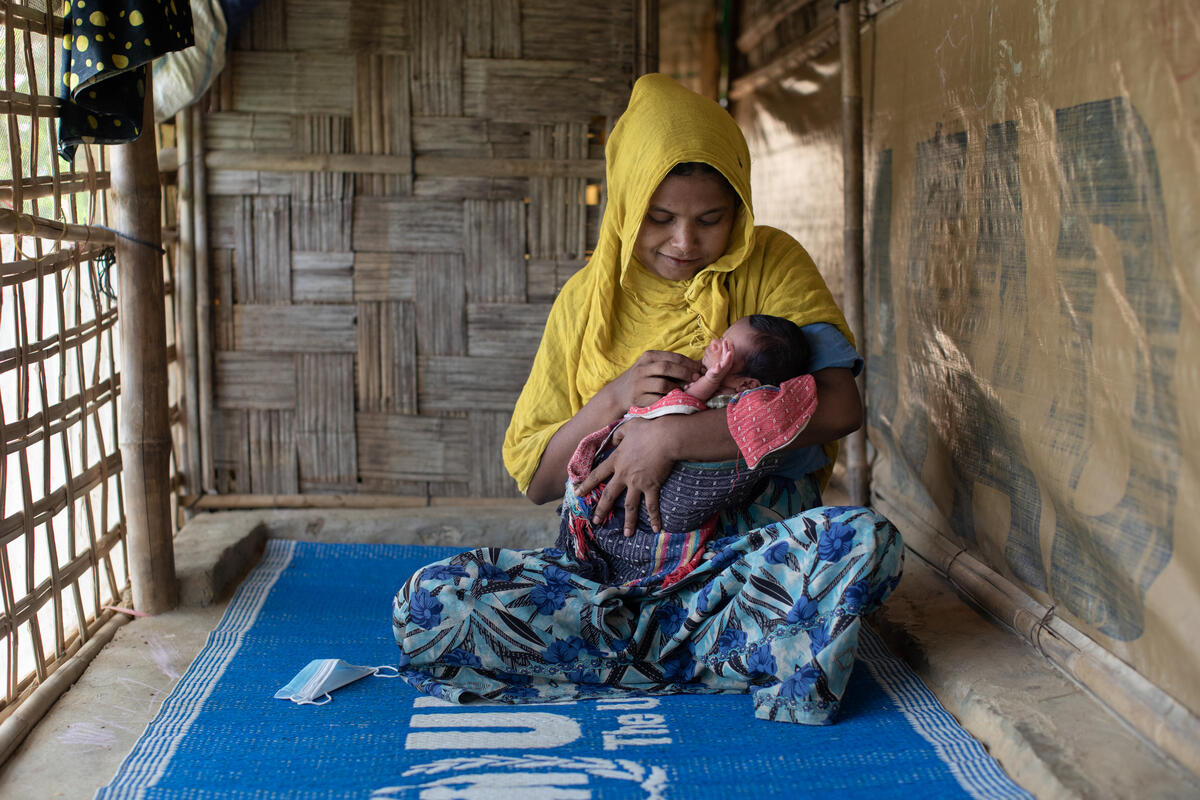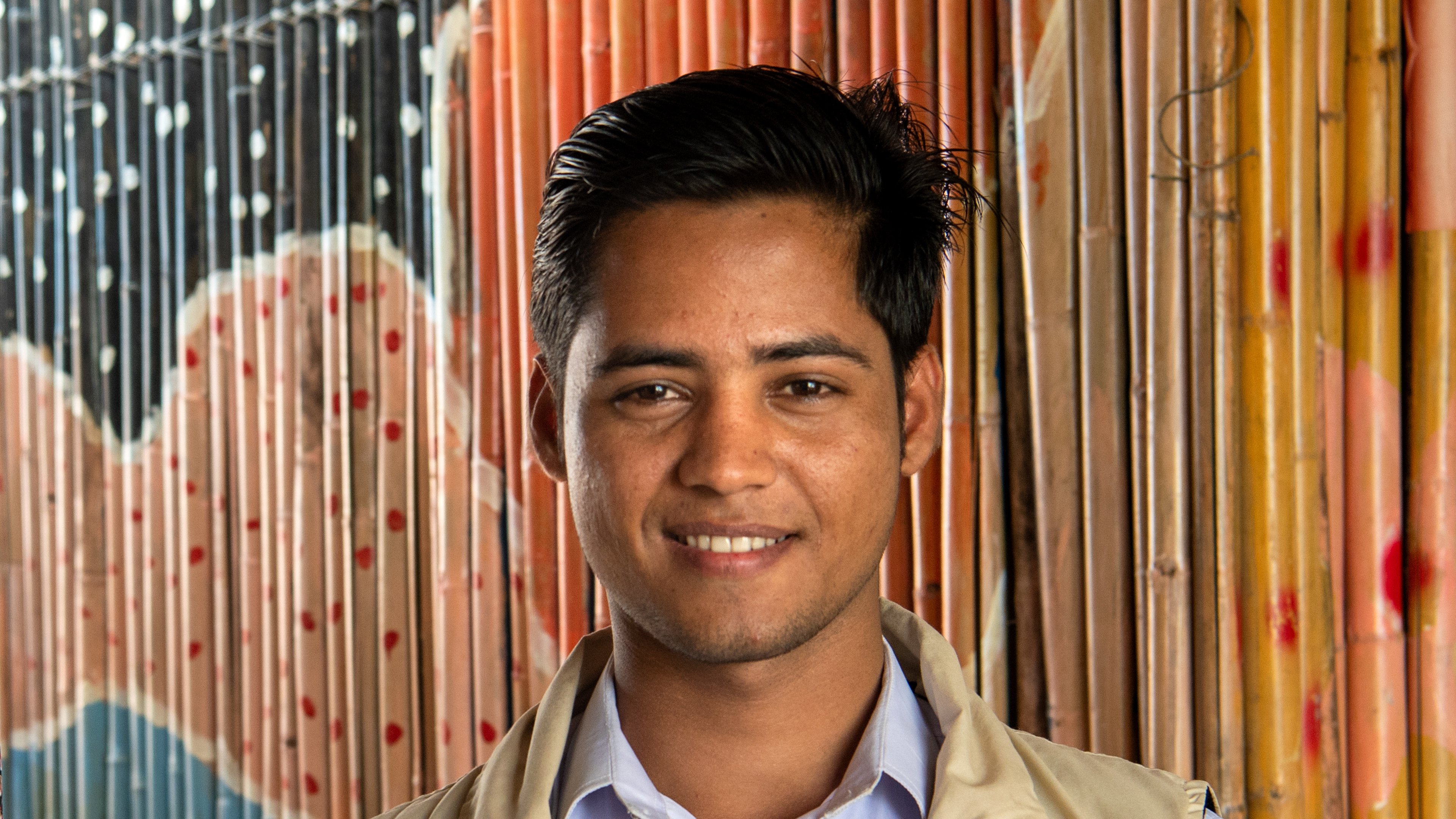UNHCR's international protection chief in Bangladesh for talks on seeking solutions and sustaining support to the Rohingya refugee crisis
UNHCR's international protection chief in Bangladesh for talks on seeking solutions and sustaining support to the Rohingya refugee crisis

Volker Türk, the Assistant High Commissioner for Protection at UNHCR, the UN Refugee Agency, concluded his visit to Bangladesh today, following high-level discussions with the Government of Bangladesh on the pursuit of solutions to the Rohingya refugee crisis.
During his five-day visit, Mr. Türk was accompanied by the Agency’s Director of the Bureau for Asia and the Pacific, Mr. Indrika Ratwatte, and the Director of External Relations, Ms. Dominique Hyde. Mr. Türk met with many Rohingya in the Kutupalong refugee settlement – the world’s largest – and discussed how they see their futures. He also met with the key Government officials, who have led the Rohingya response in Cox’s Bazar District, to review the challenges they are facing and the opportunities they see as the response evolves.
In Dhaka, Mr. Türk held high-level talks with the Government of Bangladesh that focussed on finding solutions fostering the development of conditions for the voluntary, safe and dignified return of refugees to Myanmar. They also discussed ways to expand opportunities of the Rohingya refugees to build their skills and knowledge, particularly so they will be able to contribute to society in Myanmar when they are able to return.
Following the talks, Mr. Türk said, “I was encouraged by and deeply appreciative of the Government’s unrelenting commitment to finding solutions and improving the situation for the Rohingya."
"UNHCR and the Government have agreed to focus and strengthen collective efforts that can lead to tangible improvements in their lives, in particular women and girls at risk," he added.
UNHCR’s discussions with the Government also focused on the importance of supporting Bangladeshi host communities. Mr. Türk said: “The people of Bangladesh, and especially those living in Ukhiya and Teknaf in Cox’s Bazar District, were the first responders in 2017, and they have continued to show a tremendous humanitarian spirit and generosity. The impacts of the Rohingya refugee presence on their lives must be recognized and addressed”.
While in Cox’s Bazar, Mr. Türk visited one of five centres in the Kutupalong settlements where a joint Government of Bangladesh-UNHCR registration exercise is being scaled up to provide biometric ID cards for all Rohingya. The cards provide enhanced protection and make the delivery of humanitarian assistance and services more effective and efficient. Registration and documentation will also play a key role in confirming that individuals who have been displaced from Myanmar have the right to return to their country when it is safe for them to do so.
So far, more than 125,000 refugees have been registered and issued with ID cards. “The Rohingya are a stateless people as well as refugees,” said Mr. Türk. “These cards are important means to protect their identity and their right to return to Myanmar. The Rohingya represent the largest group of stateless refugees in the world. Many have never had proper identity documents. This is a big milestone in protecting their identity,” he added.
The Assistant High Commissioner also saw what the Government and humanitarian community, including UNHCR, have delivered on the ground, including community-based protection projects that help refugees to develop skills, confidence and their ability to meet their own needs, as well as preparations ahead of the upcoming cyclone and monsoon season.
“I’m very impressed by how much we have all managed to achieve together, but also the way the refugee themselves are leading change within their community,” said Mr. Türk. “If you look around, it is very clear that the response is much more robust than what I saw a year and a half ago. The refugees tell me that they feel more secure, which is extremely important.”
He added: “With more than half a million young girls and boys in the camps, we now need to give more refugees more opportunities to channel their energy into meaningful and productive activities and secure the future of the Rohingya population once they are back home”
Mr. Türk leads UNHCR’s refugee protection work globally. He last visited Myanmar and Bangladesh in October and November of 2017.
Media contacts
- In Dhaka, Joseph Tripura, tripura@unhcr.org, +880 17 1309 037
- In Dhaka, Caroline Gluck, gluck@unhcr.org, +880 18 7269 9849
- In Cox's Bazar, Areez Tanbeen Rahman, rahmanr@unhcr.org, +880 17 0657 2715








